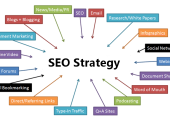Edtech marketing can prove challenging, especially because it is a relatively new practice. But with the right strategies, you can reach your target audience and grow your business. One effective approach is to focus on organic traffic. By optimizing your website and content for search engines and, more importantly, paying attention to the search needs of users, you can attract visitors who are already interested in what you have to offer.
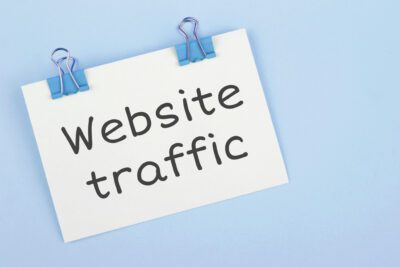
Organic traffic refers to the visitors who come to your website from search engines like Google, Bing, and Yahoo. When someone types in a query related to your product or service, you want your website to appear at the top of the search results.
The general rule of thumb to achieve this outcome is to implement a combination of on-page and off-page SEO tactics, including keyword research, content creation, link building, and more. By investing in organic traffic, you can build a sustainable stream of visitors who are more likely to convert into paying customers.
To create successful edtech marketing campaigns, you need to understand your target audience and their needs. What are they struggling with? What are their goals and aspirations? You can tailor your messaging and content to resonate with your audience by answering these questions. You can also use data and analytics to track your results and refine your approach over time. With a strategic and data-driven approach to marketing, you can achieve your goals and grow your edtech business.
Understanding Edtech Marketing
If you are an edtech company looking to grow your business, it is important to understand the basics of edtech marketing. Edtech marketing involves promoting educational technology products and services to schools, students, teachers, and parents. In this section, we will discuss the role of technology in education and how to identify your target audience’s pain points.
The Role of Technology in Education

Technology has revolutionized the way we learn and teach. Edtech companies are leveraging technology to provide innovative solutions to traditional education problems. For instance, online learning platforms allow students to access educational resources from anywhere, anytime. Virtual reality technology enhances learning by providing immersive experiences. Adaptive learning technology personalizes learning to each student’s needs.
As an edtech company, understanding the role of technology in education is crucial to developing effective marketing campaigns. You need to showcase how your technology can improve the learning experience of your target audience.
Identifying Target Audience and Pain Points
Developing an effective edtech marketing campaign requires you to identify your target audience and their pain points. Your target audience could be students, teachers, schools, or parents. Each group has different needs and pain points that you need to address.
For instance, students might struggle with a particular subject or topic. Your technology should provide a solution to that problem. Teachers might struggle with managing a large classroom or grading papers. Your technology should simplify those tasks. Schools might struggle with budget constraints or outdated technology. Your technology should provide cost-effective and innovative solutions.
By identifying your target audience’s needs, you can develop a marketing campaign that showcases how your technology can solve those problems. You can use social media, email marketing, content marketing, and other digital marketing strategies to reach your target audience.

Therefore, understanding the basics of edtech marketing is crucial to growing your edtech business. By leveraging technology to provide innovative solutions to traditional education problems and identifying your target audience’s needs and goals, you can develop effective marketing campaigns that showcase the value of your technology.
1. SEO Strategies for EdTech
The best way to increase organic traffic to your edtech website is to invest in search engine optimization (SEO) strategies. SEO is the process of optimizing your website to rank higher in search engine results pages (SERPs) for relevant keywords. Here are some effective SEO strategies for EdTech businesses:
Keyword Research and Optimization
Keyword research is the foundation of any successful SEO campaign. You need to identify the keywords that your target audience is searching for and optimize your website accordingly. Start by creating a list of relevant keywords and phrases that your target audience might use to find your edtech products or services. Use keyword research tools like Google Keyword Planner or SEMrush to identify high-volume, low-competition keywords.
Once you have identified your target keywords, optimize your website content to include them naturally. Avoid keyword stuffing, which can lead to penalties from search engines. Instead, focus on creating high-quality, informative content that provides value to your target audience.
Leveraging Backlinks and SERPs
Backlinks are a key factor in SEO rankings. They are links from other websites to your website, and they signal to search engines that your website is authoritative and trustworthy. To build backlinks, you can reach out to other websites in your industry and offer to guest post or collaborate on content.
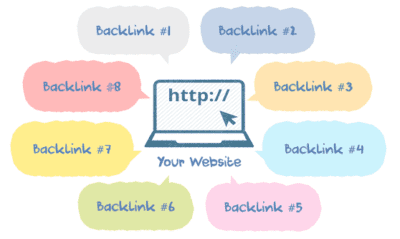
SERPs are the pages that appear when you search for a keyword on a search engine. To improve your SERP rankings, you need to optimize your website content to include relevant keywords and phrases. Use header tags, meta descriptions, and alt tags to provide context to search engines about your website content.
By implementing these SEO strategies, you can increase organic traffic to your edtech website and improve your SERP rankings. Remember, SEO is an ongoing process, so make sure to regularly update your website content and monitor your rankings to stay ahead of the competition.
2. Content Marketing for Organic Traffic
One of the most effective ways to drive organic traffic to your edtech website is through content marketing. By creating valuable and relevant content, you can attract potential customers and establish your brand as a thought leader in the industry. Here are some tips for creating a successful content marketing strategy for organic traffic.
Creating Valuable and Relevant Content
To attract organic traffic, your content needs to be valuable and relevant to your target audience. Your content should provide solutions to their problems and answer their questions. By doing so, you establish trust with your audience and position your brand as an authority in the industry.
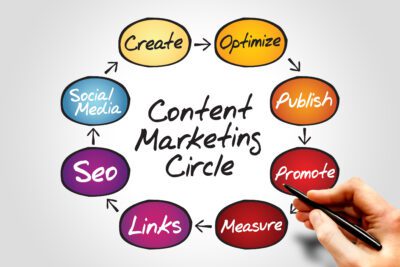
Consider creating content that addresses common needs in the education industry, such as student engagement or teacher burnout. You can also create content that showcases your edtech product in action, such as case studies or success stories. By providing real-world examples, you can demonstrate the value of your product and help potential customers understand how it can benefit them.
Utilizing Educational Blog Posts and Guides
One of the most effective ways to attract organic traffic is through educational blog posts and guides. By creating in-depth content that educates your target audience, you can attract potential customers who are searching for answers to their questions.
When creating educational blog posts and guides, focus on providing value to your audience. Your content should be well-researched and provide actionable insights that your audience can use to improve their lives. Use formatting such as tables, lists, bold, italic, etc to help format the output and convey information to the reader.
By following these tips, you can create a successful content marketing strategy that drives organic traffic to your EdTech website. Remember to focus on providing value and relevance to your target audience, and you’ll be on your way to establishing your brand as a thought leader in the industry.
3. Social Media and Community Building

Social media is an essential tool for edtech companies to build brand awareness, engage with educators, and drive organic traffic to their websites. By creating a community around your brand, you can establish yourself as a thought leader in the space and build trust with potential customers.
Engaging with Educators on Platforms like LinkedIn
LinkedIn is an excellent platform for edtech companies to engage with educators and other professionals in the industry. By sharing valuable content and participating in relevant groups, you can establish yourself as an expert in the field and build relationships with potential customers.
To make the most out of LinkedIn, you should create a company page and share relevant content regularly. This can include blog posts, infographics, and other resources that educators will find valuable. You can also join groups related to education and edtech and participate in discussions to build your reputation and connect with potential customers.
Video Marketing and Webinars for Customer Acquisition
Video marketing and webinars are powerful tools for customer acquisition in the EdTech industry. By creating informative and engaging videos, you can showcase your products and services and build trust with potential customers.
Webinars are also an effective way to generate leads and build relationships with potential customers. By hosting webinars on relevant topics, you can provide value to your audience and establish yourself as an authority in the space. You can also use webinars to showcase your products and services and provide demonstrations to potential customers.
 ,
,
For maximum results from your video marketing and webinar strategies, you should create high-quality content that is informative and engaging. You can also promote your videos and webinars on social media and other channels to drive traffic and generate leads.
Measuring Success and ROI
As with any marketing campaign, it’s important to measure your success and return on investment (ROI) to determine the effectiveness of your EdTech marketing efforts. This can help you make data-driven decisions to improve your strategy and achieve better results.
Analyzing Metrics and Conversion Rates
You need to analyze key metrics and conversion rates to measure the success of your edtech marketing campaigns. This includes tracking website traffic, engagement rates, lead generation, and sales conversion rates. By monitoring these metrics, you can identify areas of your marketing strategy that are working well and those that need improvement.
One useful tool for tracking metrics is Google Analytics, which allows you to monitor website traffic and user behavior. You can also use marketing automation software to track lead generation and conversion rates, as well as to automate your marketing campaigns.
Data-Driven Decision Making
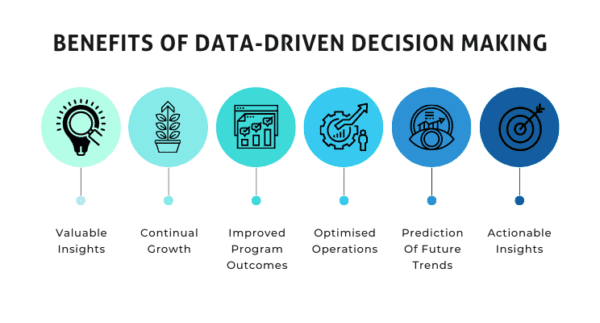
You need to make informed decisions about your edtech marketing strategy. Hence, it is recommended to rely on data rather than intuition. Data-driven decision making involves using data to guide your marketing strategy, rather than relying on gut feelings or assumptions.
By analyzing your metrics and conversion rates, you can identify areas where your strategy is working well and areas where it needs improvement. This can help you make data-driven decisions to optimize your campaigns and achieve better results.
Overall, measuring success and ROI is critical for any edtech marketing campaign. By analyzing your metrics and conversion rates and making data-driven decisions, you can improve your marketing strategy and achieve better results.





